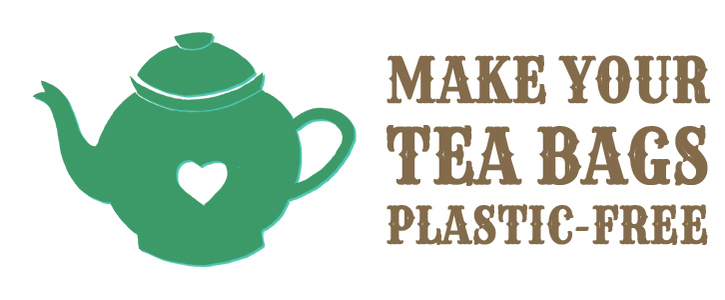500 signatures reached
To: The Soil Association
Organic Teabags Shouldn't Be Allowed To Contain Plastic

Stop the organic certification of all teabags that contain plastics. The polypropylene layer in teabags creates microplastic pollution that has the potential to enter the food chain and damage the environment.
The Soil Association symbol should only be awarded to teabags which do not contain plastics. It says in the Soil Association standards that certified products '... have been made to the highest animal welfare and environmental standards'.
This simply isn't true for teabags made with polypropylene. Teabags CAN be made without plastics so that would surely count as a higher standard.
The Soil Association symbol should only be awarded to teabags which do not contain plastics. It says in the Soil Association standards that certified products '... have been made to the highest animal welfare and environmental standards'.
This simply isn't true for teabags made with polypropylene. Teabags CAN be made without plastics so that would surely count as a higher standard.
Why is this important?
Britain drinks 165 million cups of tea a day. Council food waste composting schemes recommend composting teabags. The plastic layer within the bag will break down when composted and has the potential to enter the food chain and damage the environment.
The 2007 paper 'Microplastic—An Emerging Contaminant of Potential Concern?' Dr M Browne, T Galloway, and R Thompson states "Organisms with a range of feeding strategies can ingest and accumulate microplastics."
Section 41.6.8 of SOIL ASSOCIATION ORGANIC STANDARDS (AUGUST 2016) states: To minimise the direct and indirect environmental impacts of your packaging during its life cycle, you must: minimise the amount of material used, maximise the amount of material that can be reused or recycled, and use materials with recycled content where possible.
Surely where teabags can be made using a string-and-tag system, this would mean that they should be in order to meet the requirements for organic certification?
The 2007 paper 'Microplastic—An Emerging Contaminant of Potential Concern?' Dr M Browne, T Galloway, and R Thompson states "Organisms with a range of feeding strategies can ingest and accumulate microplastics."
Section 41.6.8 of SOIL ASSOCIATION ORGANIC STANDARDS (AUGUST 2016) states: To minimise the direct and indirect environmental impacts of your packaging during its life cycle, you must: minimise the amount of material used, maximise the amount of material that can be reused or recycled, and use materials with recycled content where possible.
Surely where teabags can be made using a string-and-tag system, this would mean that they should be in order to meet the requirements for organic certification?
